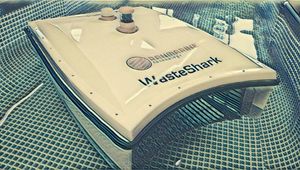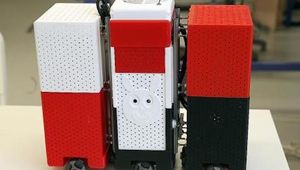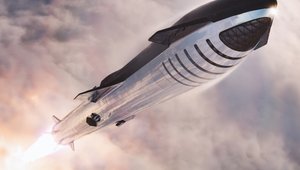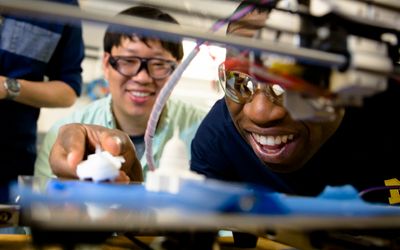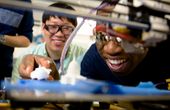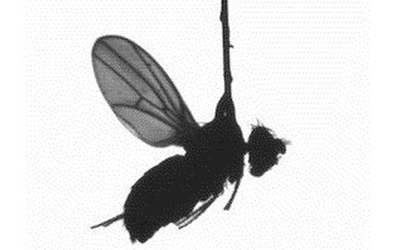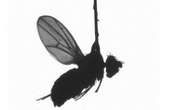TUM Boring - Tunnel Boring Machine
A tunnel boring machine designed for faster-than-a-snail tunneling speed.
Technical Specifications
| Total Weight | 22,000 kg |
| Inner Tunnel Diameter | 540 mm |
| Propulsion Force | 500 kN / 1 MN (discontinuous mode) |
| Machine Dimensions | 12.2 m (length) × 2.4 m (width) × 2.6 m (height) |
| Cutter Head Motor | four synchronous motors; water-cooled |
| Jacking System | 2 clamps; 4 hydraulics cylinders each |
| Control System | programmable logic controller (PLC) |
| Number of Sensors and Actuators | 30 sensors & 15 actuators |
Overview
Problem / Solution
Tunnels have paved the way for resolving one of the most pressing mobility issues today—congestion. With innovative concepts like the Loop of Hyperloop, unprecedented speed, comfort, and flexibility during transit become within reach as this point-to-point transportation eliminates intermediate stops. Advancing such mobility into a three-dimensional parameter answers the demand for more efficient and time-friendly transportation.
Using underground transportation also can improve our quality of life, reducing our exposure to noise and pollution brought about by traffic. Or more so, transforming former roads into green spaces, which are short in today’s setting, to answer the needs of cyclists, pedestrians, and communities.
Thus the need for tunnel boring machines becomes timely. However, existing equipment can only dig approximately 20-50 meters per day, which is 10x slower than a snail can crawl for a day. Teams suffer the challenges of catching up to a speed that will improve the tunnel boring process.
Solving inefficiency at an increased tunneling rate, the TUM Boring TBM Design balances a mix of industry standards and innovative approaches.
Design
TUM Boring machine integrates a pipe-jacking standard principle mixed with the use of multiple innovations to provide desired efficiency and tunneling rates. Aside from faster feed rates, this method features robust pipe segments pre-installed with driving surfaces, numerous off-the-shelf components, and much more. TBM uses Not-a-Boring Competition, which allows for an optimal speed. The machine is also ideal for transport as it is integrated into a 40ft shipping container for a standardized infrastructure of logistic industries.
Cutter head
TUM’s cutter head can dig a tunnel of 0.5m diameter with its cutting wheels, rotating drum, and mechanical face ceiling. It has a housing holding ring gears, four synchronous motors, and an auger conveyor.
Revolver
For building the tunnel quickly, a revolver pipe storage has all the tunnel segments, allowing a quick switch from segment to segment with minimal downtime. This construction is possible due to the motor-driven gear system rotating the revolver while prohibiting unwanted movements.
Propulsion
Four hydraulic cylinders propel each of the two clamps in the jacking system. This system promoting a continuous operation can support jack forces of up to 500kN and 1MN for discontinuous mode. The 500kN constant pressure suffices the US conditions, whereas the discontinuous rating can be set as a backup.
Control System
Acting as the brain of the entire TBM, the control system has 30 sensors and 15 actuators capable of receiving signals and evaluating them, respectively. The control system is carried out using advanced programmable logic controllers (PLC).
Steering System
Ensuring the system remains on track with minimum movement corrections, the steering system acts as a guidance system. Integrated hydraulics and sensors allow for such precise steering.
Guidance System
The guidance system, run on laser, also measures the boring device’s diversion from the planned tunnel axis. Measuring the offset of the machine with respect to the laser beam representing the straight tunnel leads to a precise measure of the TBM’s heading.
Material Removal
For material extraction, the removal system has six conveyor belts attached to the pipes used for construction. The auger conveyor also enables removing all mined materials throughout the drilling process.
Power System
Powering all sensors and actuators in the TBM, the power system is run by water-cooled synchronous motors that also drive the cutter head. The self-designed water cooling achieves the highest possible power density for the cutter head given the confined space setting.
References
Official Website
